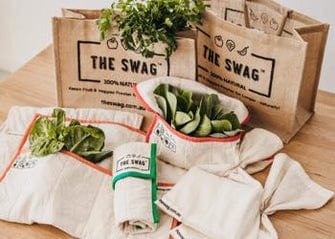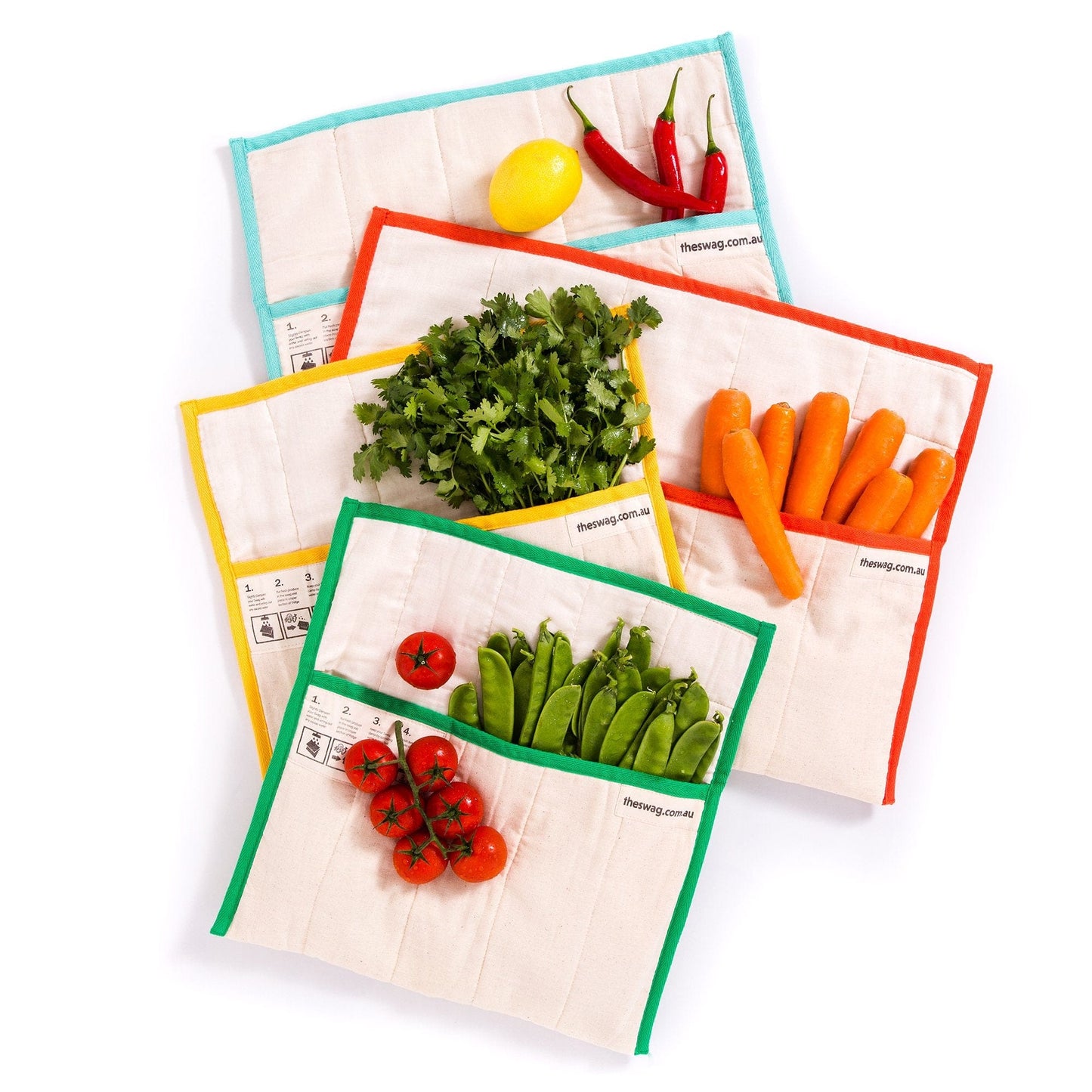Written by Chloe & Jess @health_performance_collective
The shift towards more sustainable food shopping and storage practices has been steadily gaining momentum, especially in the last few years following reports that food is the largest single source of waste in the U.S*, and global data revealing**:
🍐 Approx. 1 billion tonnes of food produced for human consumption is wasted each year.
🍐 This wastage costs the global economy around US$940 billion each year
🍐 And consumes nearly a quarter of all the water used in agriculture
But while it feels great to do our bit for the environment, did you know that the way we store food could also have a potential impact on the nutrients in our food thus affect our health and wellness?
Read on to find out three reasons why food storage matters when it comes to your nutrition!
-
Nutrient retention
When fruit and vegetables are stored improperly, it can cause nutrient loss at a quicker rate than storing them in the right way. Fruit and vegetables are great for our overall health, providing important fibre, minerals and vitamins for our bodies to keep us functioning and healthy. But those important vitamins are susceptible to breaking down when they’re exposed to heat, light and oxygen. That’s where proper storage comes in! Scientific studies dating back to the 1970’s found that the water soluble vitamins (vitamin C and B group vitamins) are most susceptible to degradation during food storage and preparation. Considering that our food has normally spent days in transport and on shelves before finally landing in our kitchens (unless you’re buying your produce directly), providing the ideal environment for our produce once it’s at home can help to slow down further degradation of those vitamins. Using Swags to reduce the exposure to light in the fridge, retain moisture and maintain stable temperatures might help to preserve vitamins in your produce for longer.
-
Moisture control
An additional factor leading to the breakdown of vitamins in food is moisture. Fruit and vegetables are separated from their source of nutrients after picking (i.e. the tree or plant) and this then causes higher rates of respiration, resulting in moisture loss. Vitamins are attached to water in our food so this moisture loss could result in increased vitamin losses too. Keeping produce in plastic bags in the fridge may increase respiration (moisture loss) due to poorer humidity control while in the bags. Produce bags may help to solve this problem by keeping moisture levels controlled and keep more of the vitamins intact in our food!
-
Reduce BPA exposure
There is growing evidence that the use of plastic for food storage may also impact our health. Some plastic products contain small molecules that can transfer to the food it’s in contact with, particularly if the plastic product itself is old or breaking down, or with heating (such as microwaving in plastic containers). Most people now are familiar with BPA being one of those molecules that can leach into food, as many plastic food products are now labelled BPA-free due to the link between BPA exposure and hormones in the body. The risk of exposure is fairly low, but increases with consistent exposure over time. Produce bags to store fruit and vegetables can help to reduce health risks by removing the need for plastic packaging of your produce while it’s in the fridge, reducing your levels of BPA and other chemical exposure.
As you can see, the way you store your veggies can have an impact, and by making some small changes to reduce nutrient loss, this can help get more nutritional bang for buck when you tuck into your fresh produce!
*https://www.npr.org/sections/thesalt/2014/11/17/364172105/to-end-food-waste-change-needs-to-begin-at-home#:~:text=Food%20is%20the%20largest%20single,into%20municipal%20landfills%20is%20food
** https://www.environment.gov.au/system/files/resources/4683826b-5d9f-4e65-9344-a900060915b1/files/national-food-waste-strategy.pdf
Follow Dieticians Chloe McLeod and Jess Spendlove for more amazing content!



